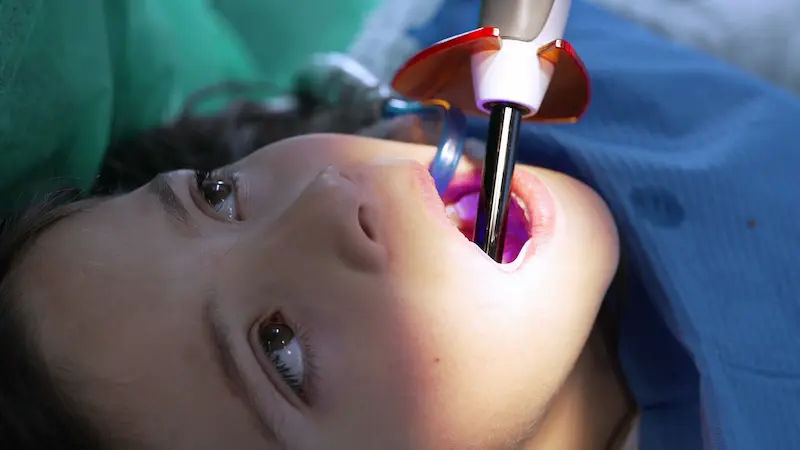Blood Donation; A Guide to Giving the Gift of Life
Discover the importance of blood donation, eligibility criteria, the donation process, and how your single act can save multiple lives this World Blood Donor Day.

Written by Dr. Dhankecha Mayank Dineshbhai
Reviewed by Dr. Vasanthasree Nair MBBS
Last updated on 13th Jan, 2026
Introduction
Every two seconds, someone in the world needs blood. This startling statistic underscores a silent, constant emergency happening in hospitals everywhere. From trauma victims and surgery patients to those battling cancer or chronic illnesses, a safe and steady blood supply is the lifeline of modern healthcare. This guide will walk you through everything you need to know about the profound impact of your donation, how to determine if you're eligible, and the simple steps to becoming a hero in someone's story. Your single act can save multiple lives.
Why Your Blood Donation is a Lifesaving Act
The need for blood is universal, but access to it is not. Blood cannot be manufactured; it can only come from generous donors. This makes every donation a critical contribution to community health.
Medical Procedures Relying on Blood Transfusions
We often associate blood donations with accident victims, but their use is far more widespread. One unit of donated blood can be separated into components (red cells, platelets, plasma) and help up to three different people. It is essential for:
Complex Surgical Procedures: Heart surgeries, organ transplants, and orthopaedic surgeries.
Cancer Treatments: Patients undergoing chemotherapy often require platelet transfusions as their bone marrow function is suppressed.
Chronic Conditions: Individuals with diseases like thalassaemia and sickle cell anaemia require regular transfusions to survive.
Obstetric and Paediatric Care: Managing complications during childbirth and treating severe anaemia in newborns.
The Constant Need: Addressing Blood Shortages
Blood has a limited shelf life. Red blood cells last for 42 days, while platelets last for only 5 days. This means the supply must be constantly replenished. Seasonal shortages, holidays, and emergencies can quickly deplete reserves. Regular, voluntary donations are the only way to maintain a stable supply, ensuring that blood is available whenever and wherever it's needed, making the importance of blood donation impossible to overstate.
Are You Eligible to Donate Blood?
Most people can donate blood, but there are important criteria in place to protect the health of both the donor and the recipient.
General Health and Age Requirements
Generally, a donor must:
Be between 18 and 65 years old (rules can vary slightly).
Weigh at least 50 kg (110 lbs).
Be in good general health and feeling well on the day of donation.
Have a haemoglobin level above the minimum threshold, which is checked via a finger-prick test before donation.
Understanding Temporary and Permanent Deferrals
Certain conditions may temporarily prevent you from donating. These are not rejections but pauses for safety. Common temporary deferrals include:
Recent tattoos or piercings (typically 6–12 months).
Travel to certain malaria-endemic regions.
Pregnancy and for a period after delivery.
Some infections or courses of antibiotics.
Permanent deferrals are less common and are typically related to chronic, transmissible conditions or specific health risks. If you have questions about your blood donation eligibility, it's always best to check directly with your local blood bank. You can also consult a doctor online with Apollo24|7 to clarify any health-related concerns about your eligibility to donate.
The Blood Donation Process: Step-by-Step
Knowing what to expect can ease any anxiety for first-time donors. The entire process, from registration to refreshments, takes about an hour, while the actual donation only takes 8–10 minutes.
Before You Donate: Preparation Tips
To ensure a positive experience:
Hydrate: Drink plenty of water and fluids the day before and day of your donation.
Eat Well: Have a healthy, iron-rich meal a few hours before donating. Avoid fatty foods.
Bring ID: Bring your donor card or a government-issued ID.
Rest Well: Get a good night's sleep beforehand.
What to Expect During Your Donation
Registration: You'll provide basic information and read about donation.
Health Screening: A confidential interview about your health, travel, and lifestyle history.
Mini-Physical: Check of your pulse, blood pressure, temperature, and haemoglobin level.
The Donation: You'll be seated comfortably. A sterile needle is placed in your arm vein. You donate about one pint of blood. The process is very safe, with no risk of contracting any disease.
Refreshment & Rest: You'll rest for 10–15 minutes while enjoying a snack and a drink to replenish your fluids.
Post-Donation Care and Recovery
Keep the bandage on for a few hours.
Avoid heavy lifting or strenuous exercise for the rest of the day.
Continue to hydrate and eat regular meals.
If you feel lightheaded, lie down with your feet up.
Debunking Common Myths About Blood Donation
Misinformation often prevents willing people from donating. Let's clear the air.
Consult Top Specialists for Personalised Tips
"Donating Blood is Painful and Weakens Me"
The only pain is a quick pinch from the needle. Most people feel perfectly fine afterwards. Your body replaces the plasma within 24 hours and the red cells within a few weeks. In fact, many regular donors report feeling a sense of positive well-being, often called the "helper's high."
"I Have a Medical Condition, So I Can't Donate"
Having a condition like diabetes, hypertension, or high cholesterol (under control with medication) does not automatically disqualify you. Eligibility requirements are designed to be inclusive while ensuring safety. The best approach is to be honest during the screening process and let the medical professionals make the determination.
The Different Types of Blood Donation
There’s more than one way to give. Different patients need different components.
Whole Blood Donation
This is the most common type. You donate one pint of blood containing red cells, white cells, platelets, and plasma. It's then separated into its components.
Apheresis: Platelet and Plasma Donation
This is a more automated process where blood is drawn from one arm, passed through a machine that separates a specific component (like platelets or plasma), and the remaining blood is returned to you through the other arm. Platelet donation is crucial for cancer patients, and because platelets regenerate quickly, you can donate more frequently—up to 24 times a year.
How to Find a Blood Drive and What to Do Next
Ready to donate? Taking the next step is easy.
Search online for "where to donate blood near me" or "blood drive [your city]."
Visit the websites of major organisations like the Red Cross, local hospital blood banks, or government health portals.
Many organisations have apps to schedule appointments and get reminders for your next eligible donation date.
Simply book an appointment and show up. You’ve made a decision that will change lives.
Conclusion
There's a lot of the incredible impact we can have on each other's lives through a simple, selfless act. The need for blood is perpetual and universal. Overcoming the myths and understanding the straightforward process is the key to unlocking a vast potential for good within our communities. This 14th June, let the stories of survivors and the gratitude of families inspire you. Find a drive, roll up your sleeve, and become someone's lifeline. The gift of blood is the ultimate gift of life.
Consult Top Specialists
Consult Top Specialists for Personalised Tips

Dr. Anand Ravi
General Physician
2 Years • MBBS
Bengaluru
PRESTIGE SHANTHINIKETAN - SOCIETY CLINIC, Bengaluru

Dr. Amrutha G
General Physician/ Internal Medicine Specialist
10 Years • MBBS,DNB(family medicine), Diabetologist-CCEBDM,CCGDM
Bengaluru
Apollo Clinic, Sarjapur Road, Bengaluru

Dr. Sharad Sharma
General and Laparoscopic Surgeon
25 Years • MBBS, MS( Gen. Surg.), Dip. In Adv. Lap Surg., FALS, FMAS, FIAGES BARIATRIC SURGEON .
Mumbai
Apollo Hospitals CBD Belapur, Mumbai

Dr. Sunil Kaul
General Surgeon
30 Years • MBBS, MS, FICS, FIMSA, FMAS
Delhi
Apollo Hospitals Indraprastha, Delhi
(25+ Patients)

Prof Dr Pawanindra Lal
Minimal Access/Surgical Gastroenterology
31 Years • MS, DNB, FCLS, FRCS(Ed,Glasg,Eng,Irel), FACS, FAMS, FFSTEd
Delhi
Apollo Hospitals Indraprastha, Delhi
(100+ Patients)
Consult Top Specialists

Dr. Anand Ravi
General Physician
2 Years • MBBS
Bengaluru
PRESTIGE SHANTHINIKETAN - SOCIETY CLINIC, Bengaluru

Dr. Amrutha G
General Physician/ Internal Medicine Specialist
10 Years • MBBS,DNB(family medicine), Diabetologist-CCEBDM,CCGDM
Bengaluru
Apollo Clinic, Sarjapur Road, Bengaluru

Dr. Sharad Sharma
General and Laparoscopic Surgeon
25 Years • MBBS, MS( Gen. Surg.), Dip. In Adv. Lap Surg., FALS, FMAS, FIAGES BARIATRIC SURGEON .
Mumbai
Apollo Hospitals CBD Belapur, Mumbai

Dr. Sunil Kaul
General Surgeon
30 Years • MBBS, MS, FICS, FIMSA, FMAS
Delhi
Apollo Hospitals Indraprastha, Delhi
(25+ Patients)

Prof Dr Pawanindra Lal
Minimal Access/Surgical Gastroenterology
31 Years • MS, DNB, FCLS, FRCS(Ed,Glasg,Eng,Irel), FACS, FAMS, FFSTEd
Delhi
Apollo Hospitals Indraprastha, Delhi
(100+ Patients)
More articles from General Medical Consultation
Frequently Asked Questions
How often can I donate blood?
You can donate whole blood every 56 days (or 8 weeks). This allows your body enough time to replenish its iron stores. For platelet donation via apheresis, you can donate much more frequently—up to every 7 days, but no more than 24 times a year.
Does blood donation have any health benefits for the donor?
Yes, there are several potential benefits. It can help reduce harmful iron stores (if levels are too high), stimulate the production of new blood cells, and provide a sense of psychological well-being from helping others. Apollo24|7 offers convenient home collection for tests like haemoglobin (Hb) or ferritin (iron stores) if you're curious about your levels before or after donation.
I'm afraid of needles. Can I still donate?
Absolutely. Many donors have a fear of needles. Inform the staff beforehand; they are trained to be supportive. The initial pinch is very brief, and most people find that looking away and focusing on deep breathing helps immensely. The rewarding feeling afterwards is often worth the momentary discomfort.
What is the universal blood donor type?
O-negative blood is the universal red cell donor. This means O-negative blood can be transfused to patients of all blood types in emergency situations when there's no time to type their blood. This makes O-negative donors incredibly important.
How is the donated blood tested?
Donated blood is rigorously tested for a panel of infectious diseases, including HIV, Hepatitis B and C, Syphilis, and others. This is in addition to the health screening you undergo. If any test is positive, the blood is discarded, and the donor is notified confidentially.




